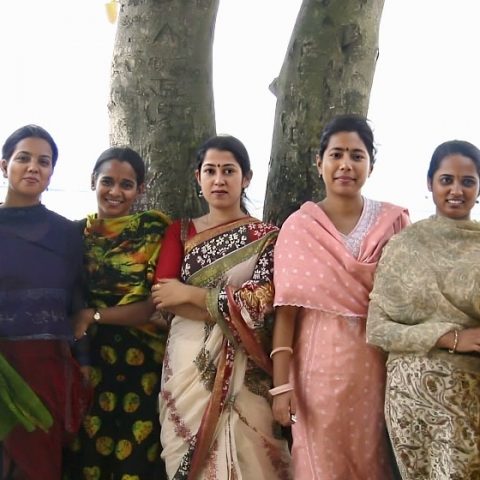Cholera is an infectious diarrhoeal disease caused by ingesting food or water contaminated with the bacteria Vibrio cholerae. It affects 1.4 billion people globally, especially in endemic countries in South Asia, Africa, and Central America. Annually, it claims over 120,000 lives when rehydration treatment is not administered imminently.

Photo: Shumon Ahmed / icddr,b
Bangladesh’s capital – Dhaka – is classified as hyper-endemic as the city experiences two seasonal outbreaks of cholera every year. In spite of the constant threat of this disease, an exploration of the diverse V.cholerae strains percolating in this environment and its connection to the annual outbreaks were only recently examined.
Researchers from the Wellcome Sanger Institute, icddr,b and collaborating partners conducted whole-genome sequencing of V.cholerae, tracking the transmission of cholera at the household level across Dhaka.
According to findings published in Nature Genetics, samples were collected from patients admitted to icddr,b’s Dhaka hospital during 2002-2005; V.cholerae was isolated from these index patients and during a surveillance period of three weeks, additional samples were gathered from household members of the infected cholera patients. A total of 303 V.cholerae isolates were collected from 224 individuals across 103 households, specifically to analyse the prevalence of transmission among those who ate together and shared cooking utensils.
“Using genomics, we found that cholera is easily transmitted within the household. Preventing this spread within the household could enormously reduce cholera outbreaks and highlights the need for prioritising local control strategies. This could have a huge impact, not only on the individual households, but also on the entire region.”
– Dr Daryl Domman, first author from the Wellcome Sanger Institute
“Whereas our previous studies have tracked cholera at the global level, here we look at households in a region at high risk of seasonal cholera outbreaks. Our fine-scale genomic data can help identify which control strategies could have the most impact, and we provide genetic tools to measure the effectiveness of household and local interventions in reducing outbreaks.”
– Professor Nick Thomson, co-lead author from the Wellcome Sanger Institute and London School of Hygiene & Tropical Medicine
Critically, data from the research indicates there is a direct correlation between V.cholerae isolated from members of the same household, illustrating a common source for the transmission of the infection.
About 80 per cent of secondary infections were linked to the first cholera case in a particular household, suggesting the necessity to reduce exposure of V.cholerae at the household level and terminating its transmission.
Genomes of all samples were tested to determine how the cholera strains from each individual were related and compared it with strains emerging from other parts of the world between 1957 and 2014. The findings signify that not only is Dhaka part of a wider, highly connected regional transmission network but also that strains which originated from the city were discovered in outbreaks outside of South Asia, including Haiti in 2010 and parts of Africa.
“Vaccination together with WASH interventions – improved water, sanitation and hygiene – are critical interventions for preventing and controlling the spread of cholera.”
– Dr Firdausi Qadri, co-lead author from the icddr,b in Bangladesh
The spread of cholera is closely linked to inadequate access to clean water and sanitation amenities. And to tackle the rampant spread of this deadly disease, Dr Firdausi Qadri, emeritus scientist at icddr,b advocates for “vaccination as well as improved water, sanitation and hygiene interventions and facilities to be established in Bangladesh. This could greatly reduce the risk of cholera outbreaks not just in a particular country, but also regionally”.

